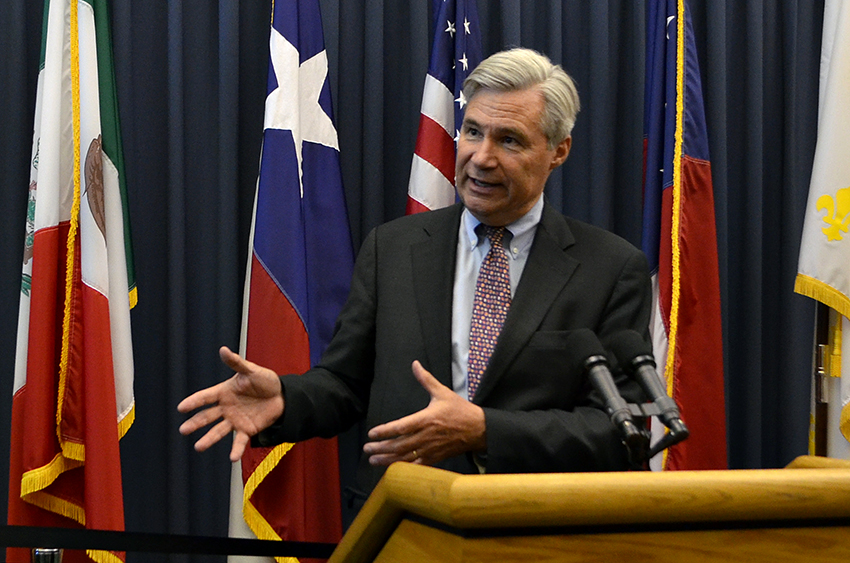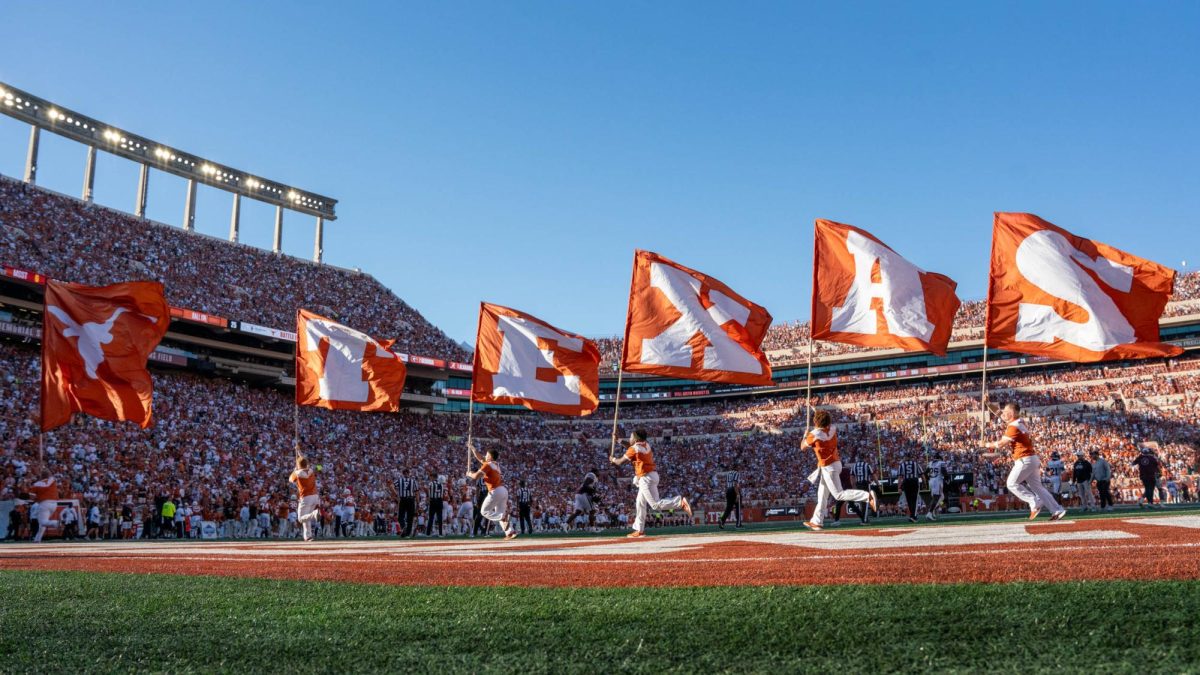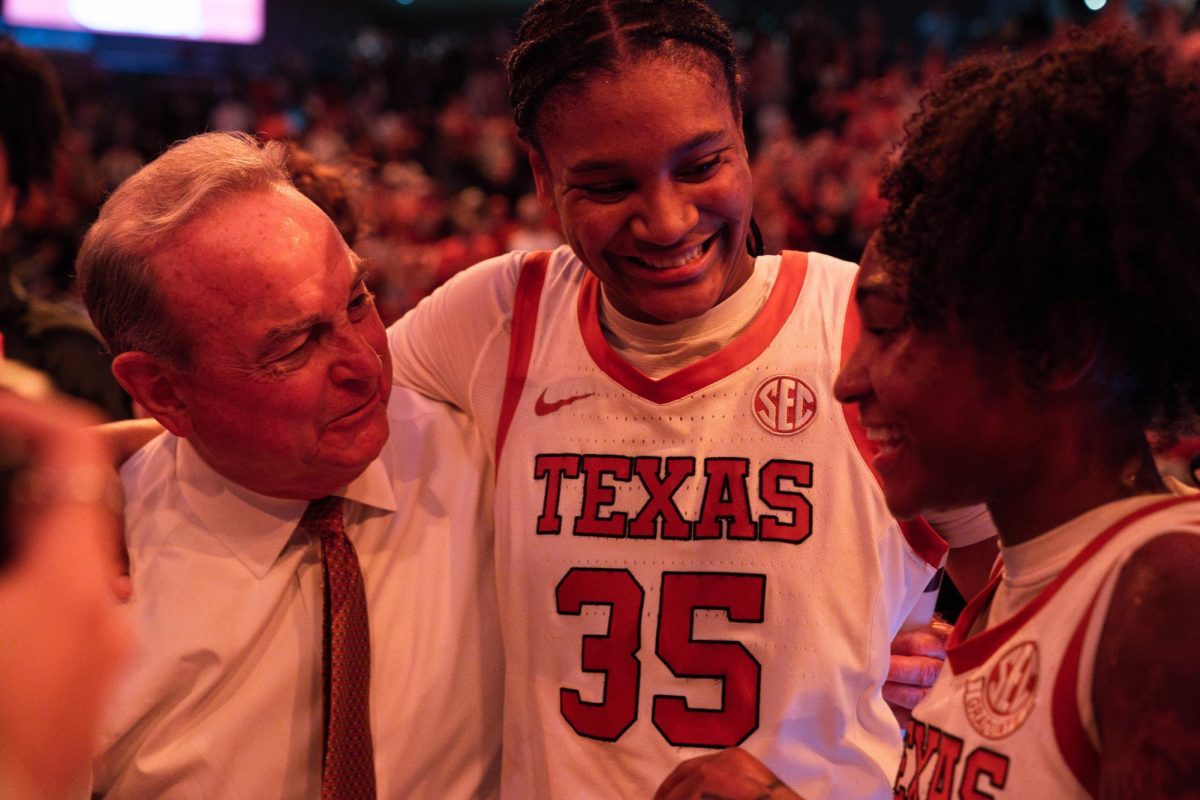State Rep. Elliott Naishtat (D-Austin) and U.S. Sen. Sheldon Whitehouse (D-Rhode Island) hosted a discussion on climate change at the State Capitol on Monday involving UT researchers Kerry Cook, a professor from the Jackson School of Geosciences, and Charles Jackson, a researcher with the UT Institute for Geophysics.
The panel focused on the rhetoric of climate change deniers and the institutions that negate climate science.
“What’s convincing to a climate scientist is not necessarily the same thing that convinces everyone else,” Jackson said.
Cook pointed out the danger climate change denial poses for the developing world and brought up the difference in damage between regions affected by Hurricane Matthew.
“The developing world is faced with the consequences of climate change,” Cook said. “It’s the difference of being in Florida or in Haiti facing down Hurricane Matthew.”
Cook introduced a class called “Global Warming” to undergraduates four years ago. The class is open to all majors, which Cook believes is particularly important.
Cook said the class isn’t about public policy or political discussion, it’s simply the science around global warming. Because of this, Cook said students are generally receptive to the curriculum.
“I have seen students come into the class very skeptical about global warming, but I have never seen anyone come in unreceptive about the science,” Cook said after the panel. “It’s not about politics, it’s not about policy. It’s kind of a no-brainer that increasing greenhouse gases in the atmosphere increases temperature.”
The panel followed a press conference about Whitehouse’s investigation of Rep. Lamar Smith (R-Texas), Chair of the House Science, Space and Technology Committee, for what Whitehouse termed a “reckless use” of congressional power during an investigation of ExxonMobil. Smith subpoenaed the Securities and Exchange Commission, two attorney generals and environmental groups during the investigation, a move Whitehouse said was intended to protect the ExxonMobil corporation from allegations that the company negatively impacted the environment. Smith’s district encompasses most of West Campus.
“Representative Smith is not just here doing something unprecedented to obstruct state officials in the performance of their duties, he’s doing it on behalf of the very subject of their investigation,” Whitehouse said at the press conference.
Smith has maintained that the subpoenas are a lawful and necessary investigation. However, Whitehouse has called him out for his monetary connection ExxonMobil, pointing to campaign donations from the oil and gas industry.
Committee staff have repeatedly attempted to reach out to every party to encourage cooperation and compliance with the subpoena,” Smith said in a statement in September. “The committee wants the truth, Americans deserve the truth, and the Constitution requires that we seek the truth.”
Whitehouse said actions like these are at the center of the debate unbeknownst to the average person and compete with the slow process of scientific consensus.
“There has been institutionalized machinery to propagate climate denial,” Whitehouse said. “If you just let its product compete with say the Fox News base against science being filtered through peer review requirements and delays and contradictions, you end up with an unfair fight.”
Other panelists came from Rice University, Texas Tech University and Texas A&M University. The ExxonMobil investigation is ongoing, but two lawyers subpoenaed by Smith have not cooperated with
his demands.





















